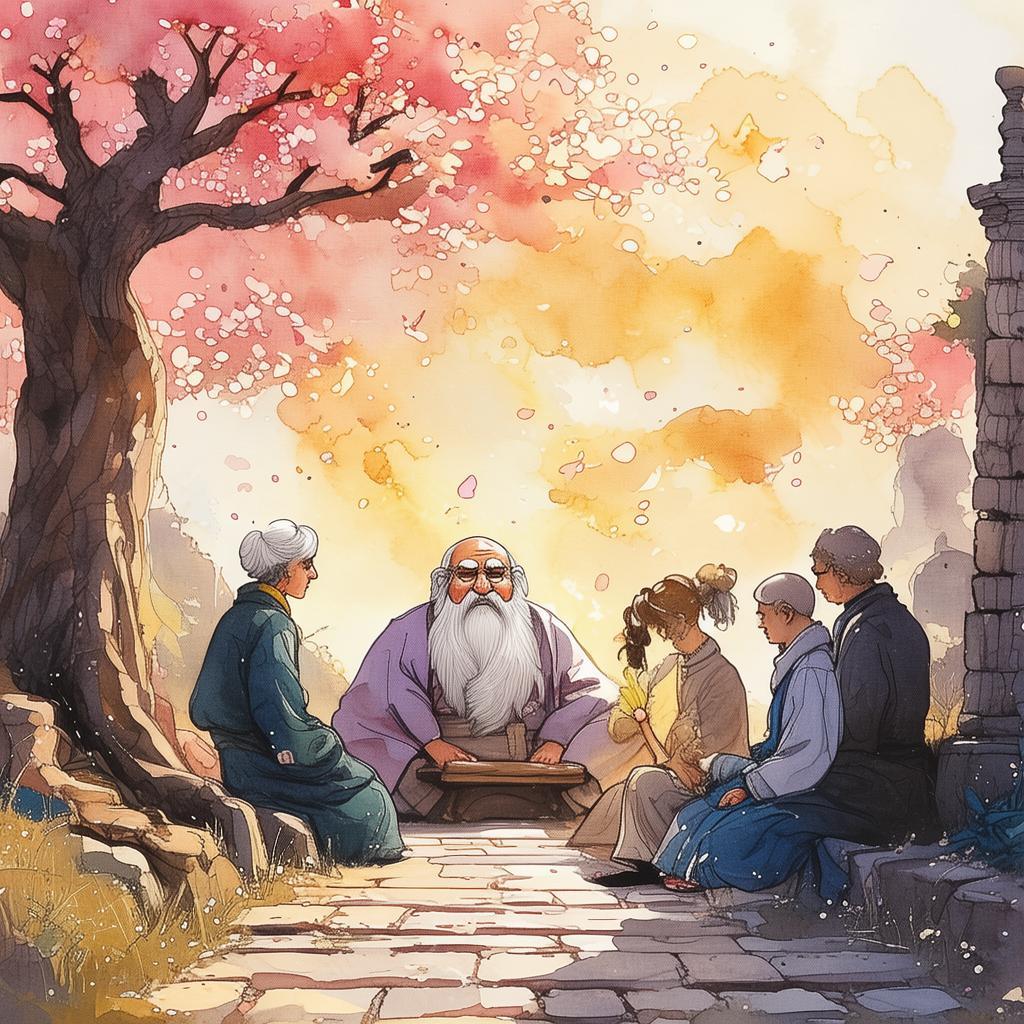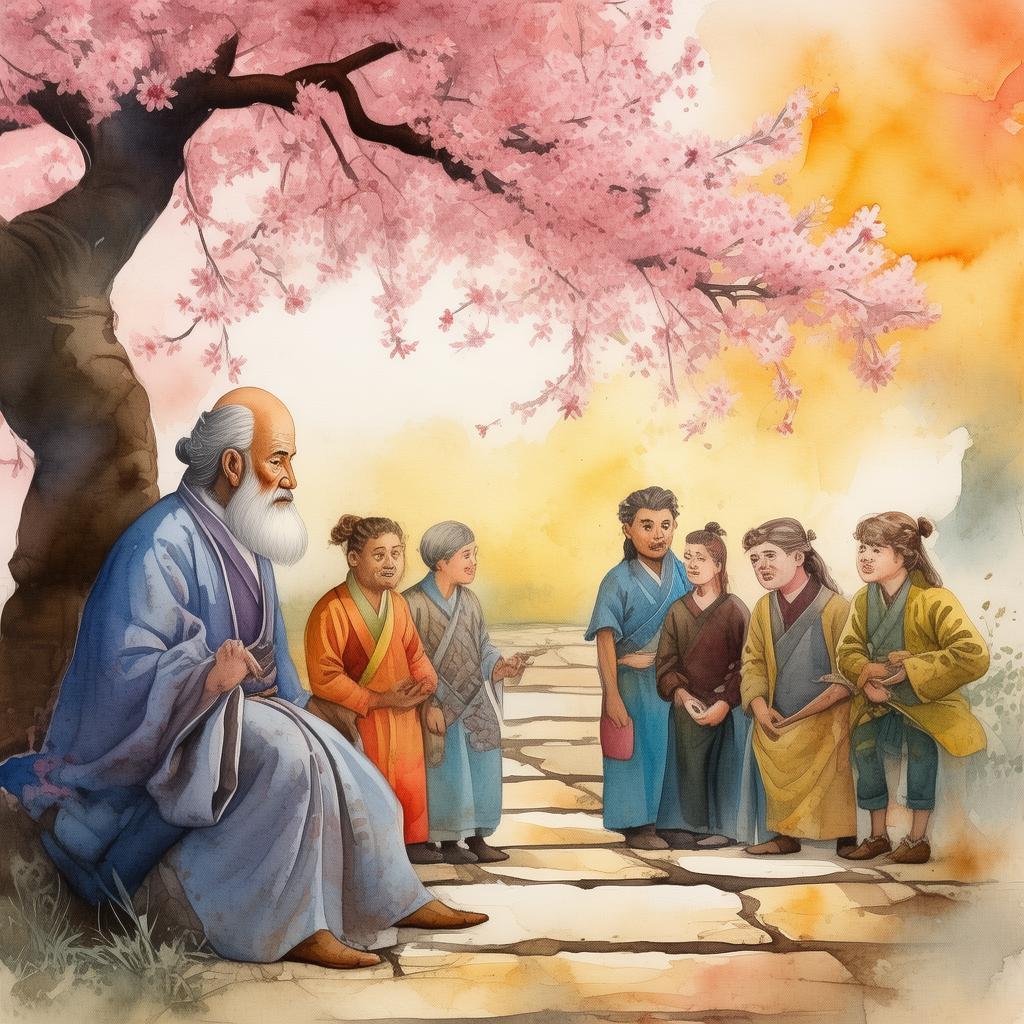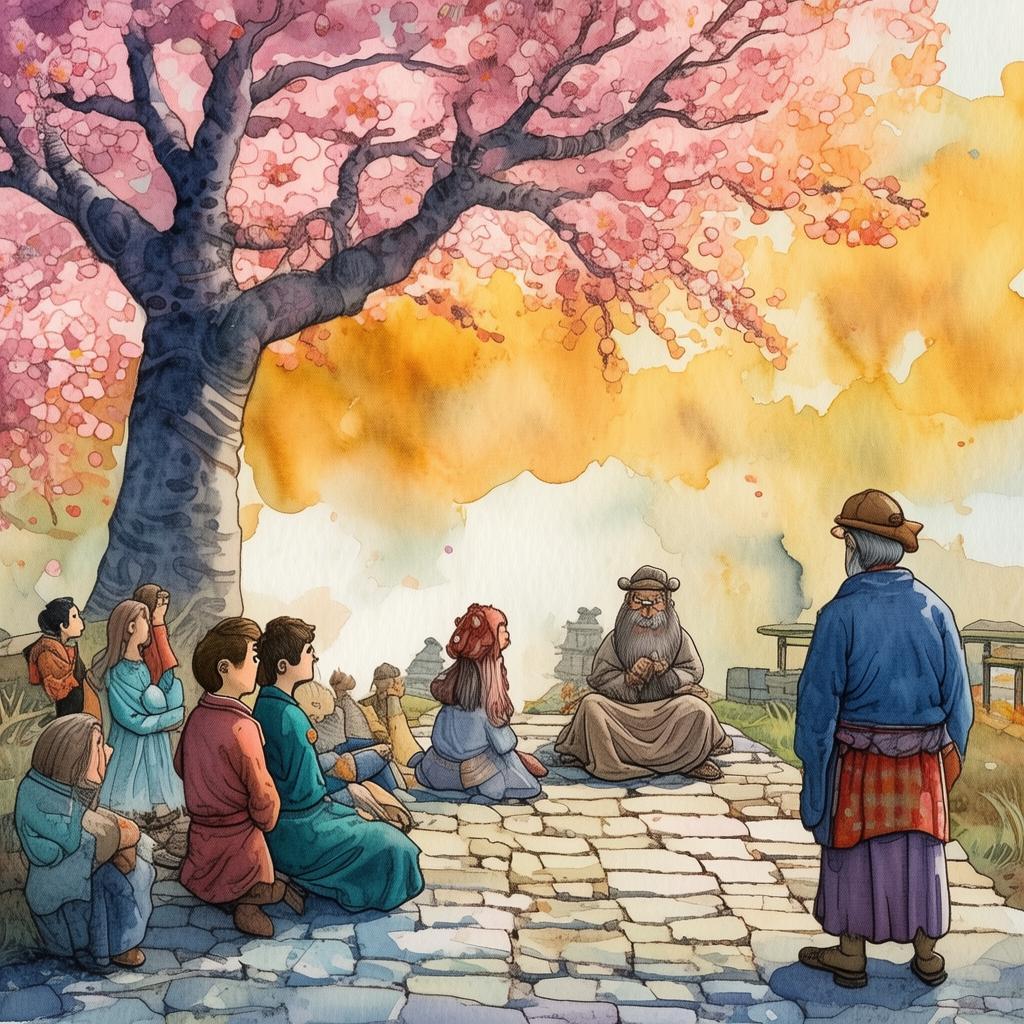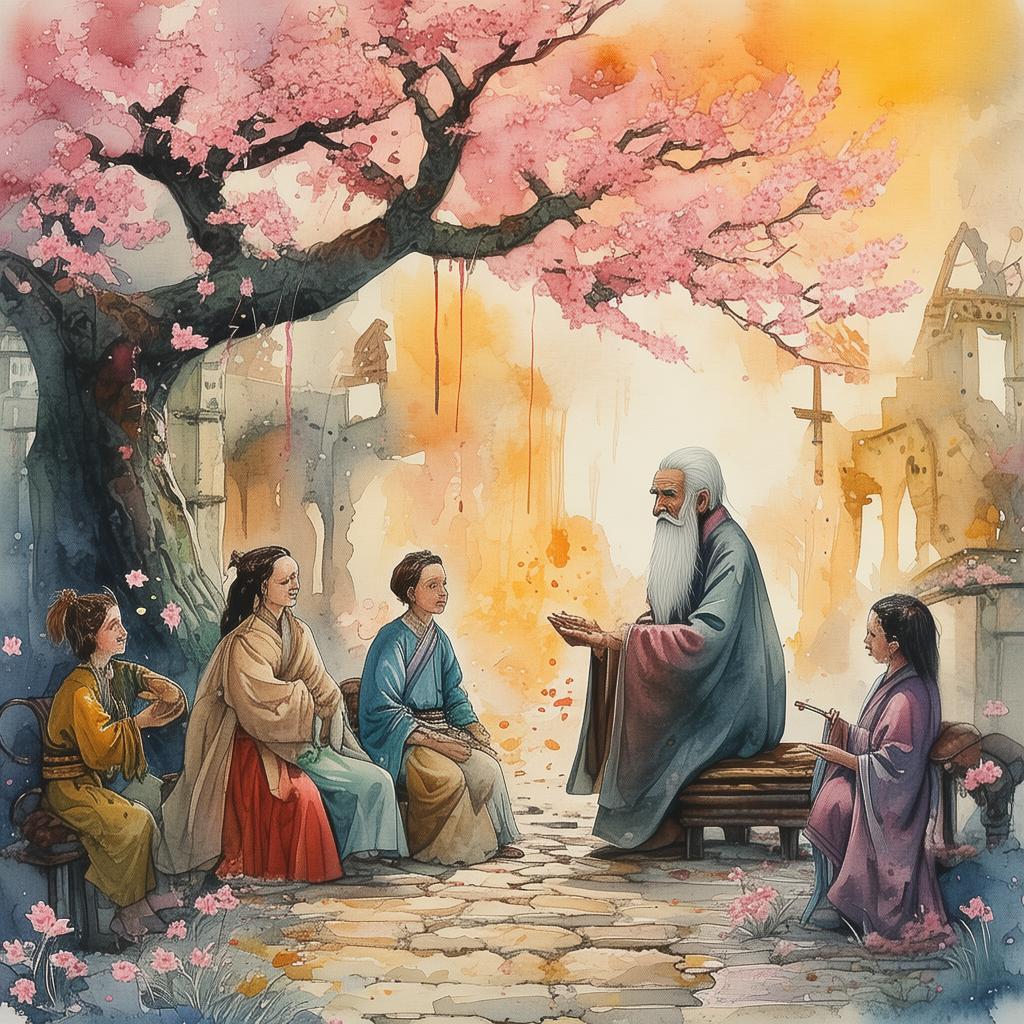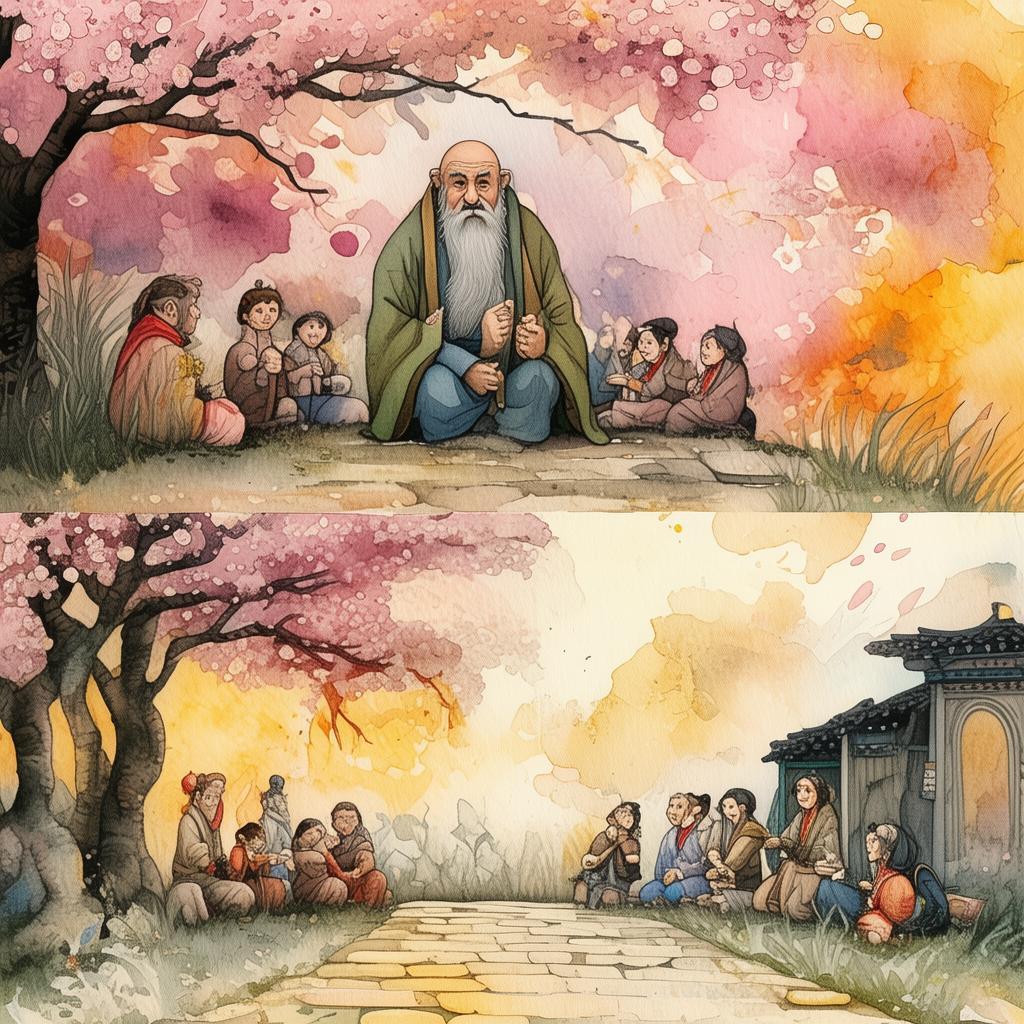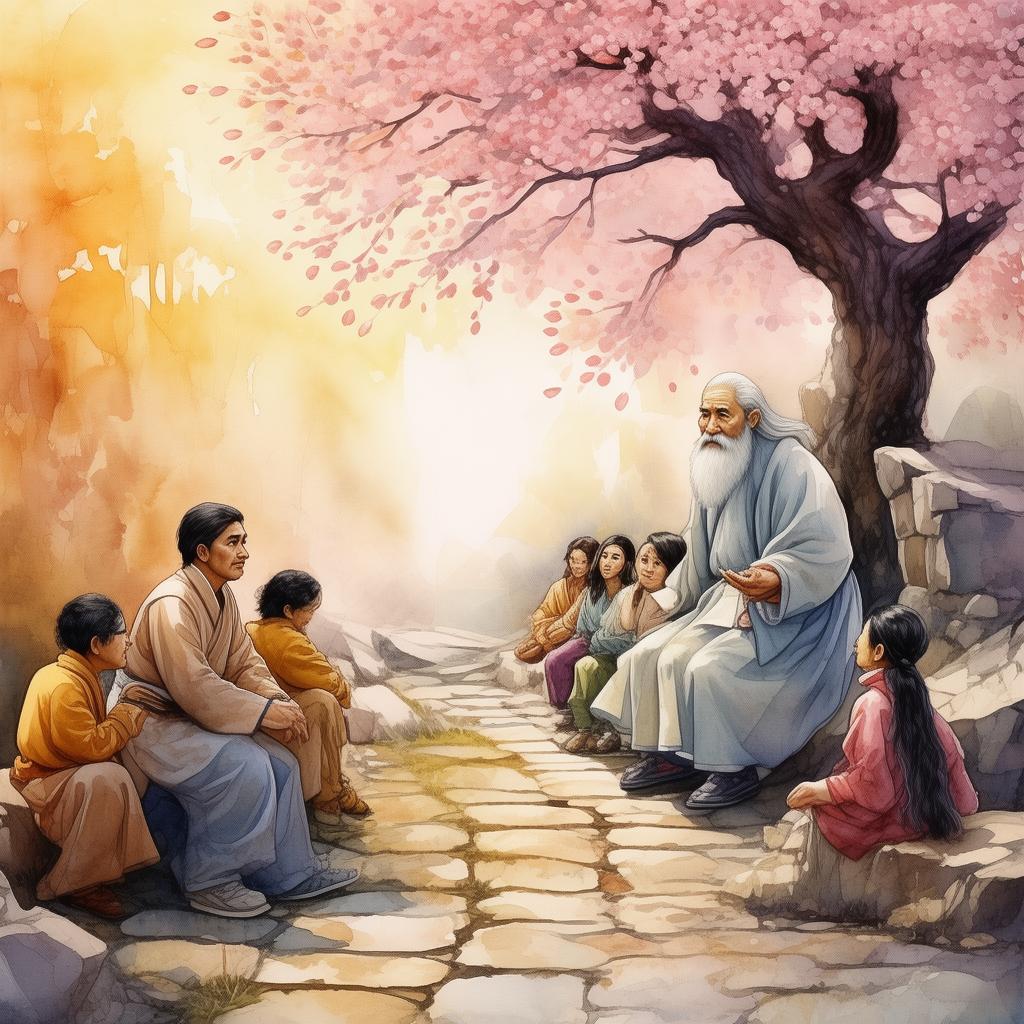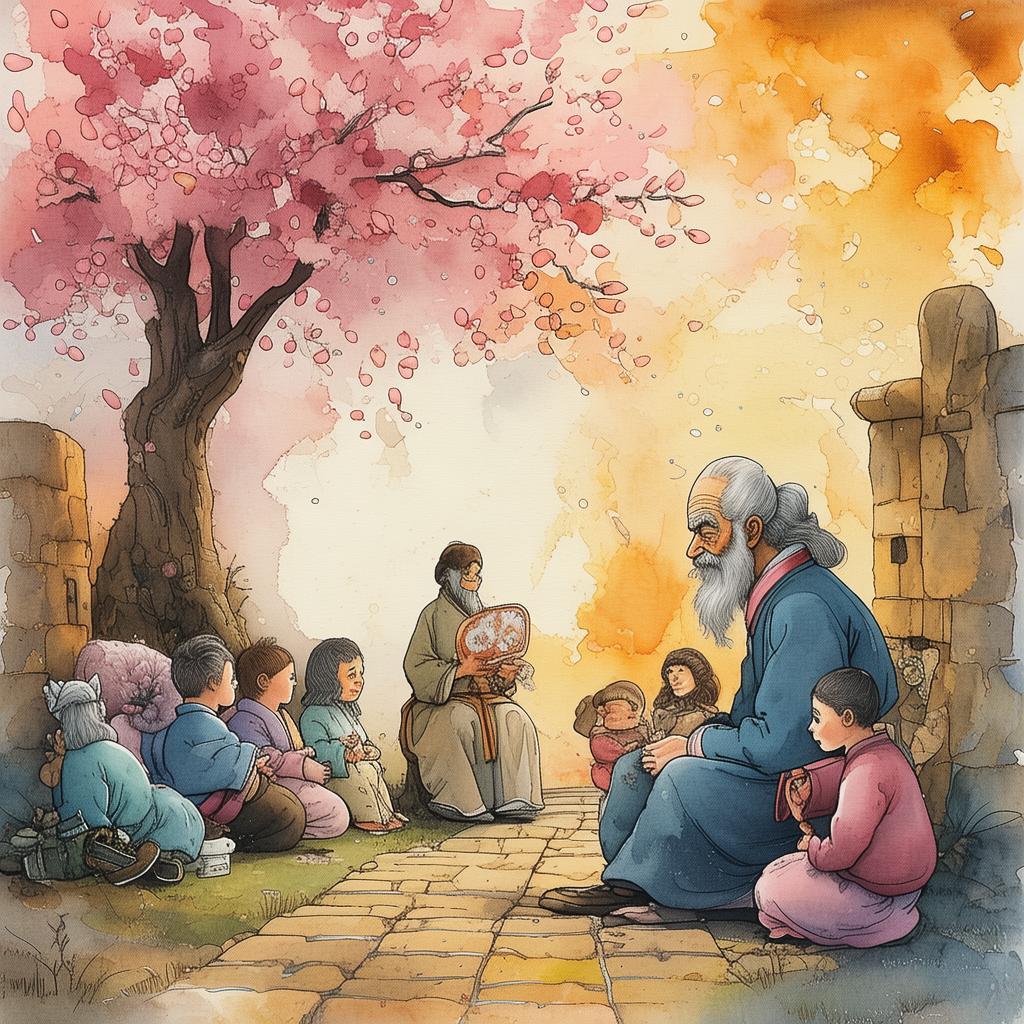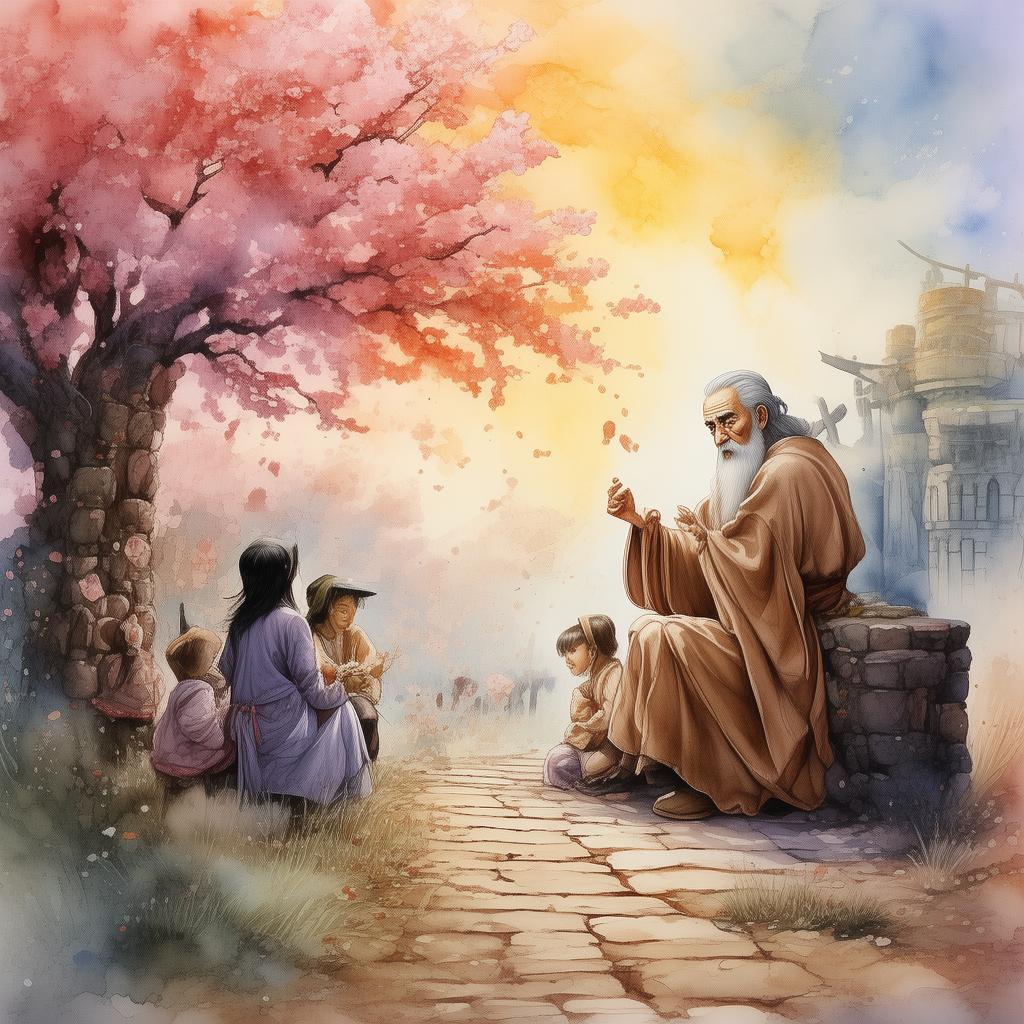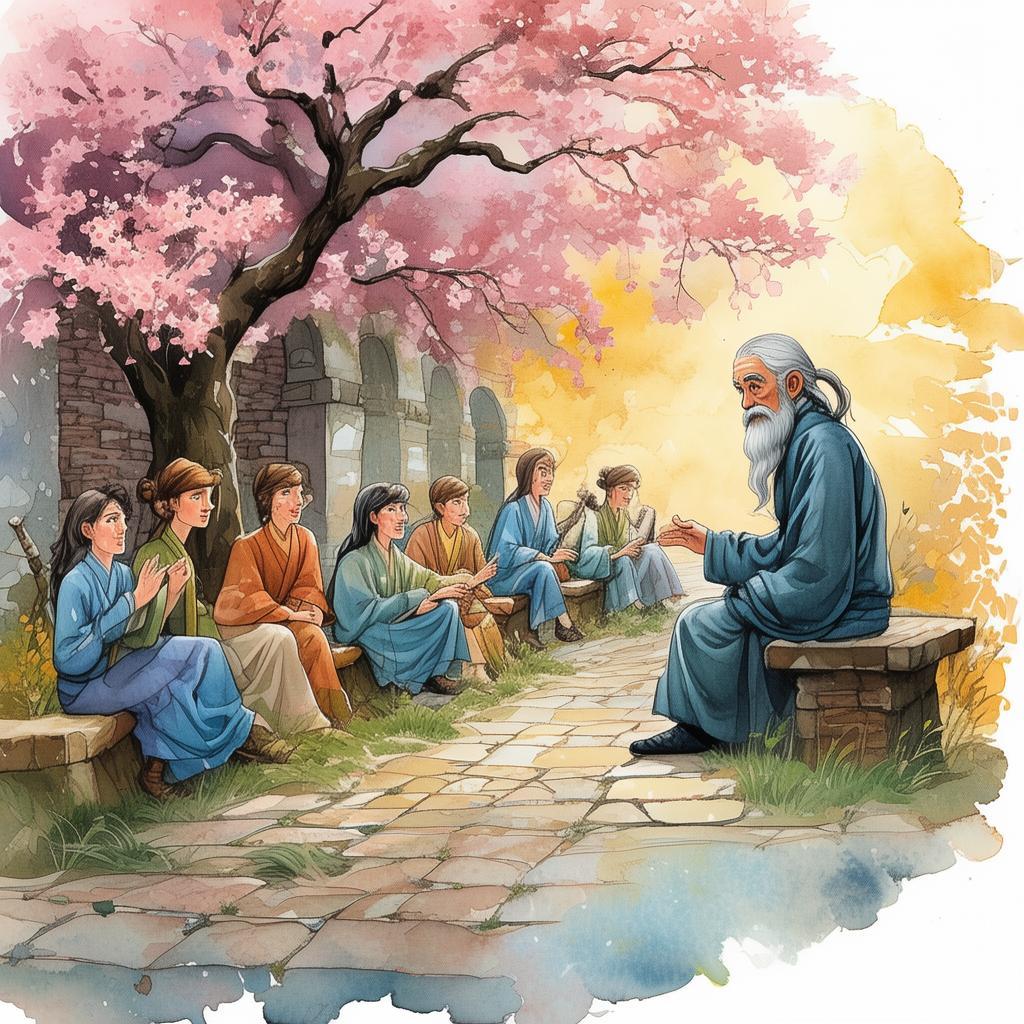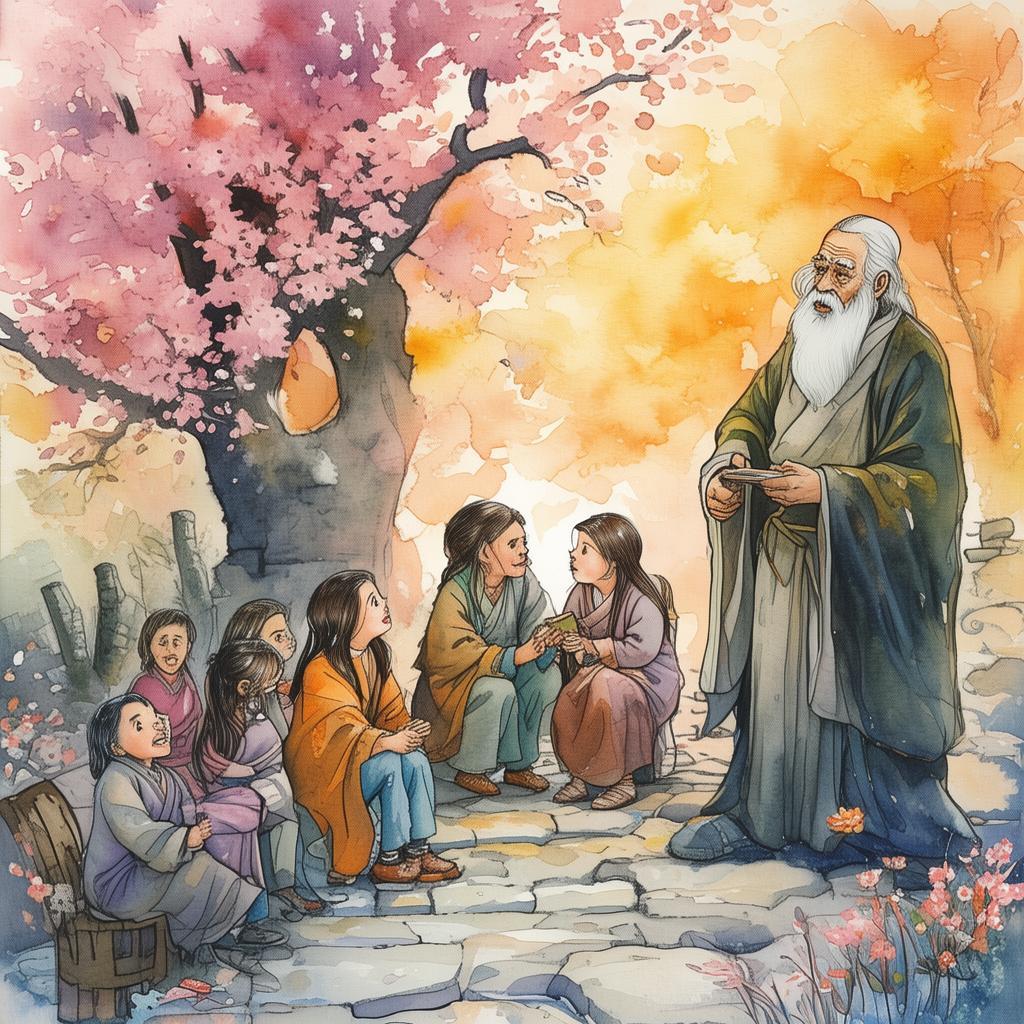Pen of the Celestial Dragon: The Tale of the Unwritten Character
In the heart of ancient China, where the ink of history flowed like the Yangtze River, there lived a young calligrapher named Ming. Ming was not just any calligrapher; he was a descendant of a lineage of scribes who had preserved the art of calligraphy for centuries. His hands, though young, were deft and his heart, full of passion for the ancient characters that held the essence of the Chinese language.
Ming spent his days in the serene halls of the Great Library of Chang'an, where the scrolls of wisdom were as numerous as the stars in the night sky. His nights were spent practicing the strokes of the characters, each one a dance of ink and meaning. But there was one character that eluded him, one that was said to be the most powerful and the most elusive of all—the character that was never written, the character that was the essence of the dragon, the celestial dragon.
The legend of the unwritten character was whispered among the scholars, a tale of a character that could change the fate of the world. It was said that the character, when written, could bring prosperity, peace, or even the end of times. Ming was fascinated by the legend, but he never believed it to be true. To him, the character was just a myth, a figment of the ancient scribes' imaginations.
One evening, as the moon hung low in the sky, casting a silver glow over the library, Ming found himself in the depths of the archive, searching for any mention of the unwritten character. His fingers brushed against the ancient scrolls, each one a testament to the rich history of the Chinese language. It was then that he stumbled upon a scroll that was unlike any other. It was blank, save for a single character, etched in a language that was both familiar and alien to him.
The character was a dragon, but it was not the dragon of myth or legend. It was a dragon that seemed to breathe fire, to move with the grace of the wind, and to embody the very essence of the celestial. Ming's heart raced as he realized that this was the unwritten character, the one that was said to be the pen of the celestial dragon.
With trembling hands, Ming began to write the character, his ink flowing like the river of life. As the character took form, the room around him seemed to change. The air grew thick with energy, and the scrolls on the walls seemed to come alive, each one whispering secrets of the past. Ming felt a surge of power, a connection to the ancient scribes who had once held this knowledge.
Suddenly, the room was filled with a blinding light, and Ming found himself standing in a vast, ethereal realm. Before him was a dragon, its scales shimmering with the colors of the rainbow. The dragon spoke to Ming, its voice like the rustling of leaves in the wind.
"You have called forth the celestial dragon's pen," the dragon said. "Now, you must choose wisely, for the character you write will shape the world."
Ming, filled with a newfound sense of purpose, began to write. The character formed, and as it did, the realm around him began to change. The mountains rose, the rivers flowed, and the world was reborn. Ming realized that the character was not just a symbol of power, but a tool of creation.
As the light faded, Ming returned to the library, the character still fresh on the scroll. He looked at the character, now known as "The Dragon's Calligraphy," and understood the true meaning of the ancient proverb, "The pen is mightier than the sword."
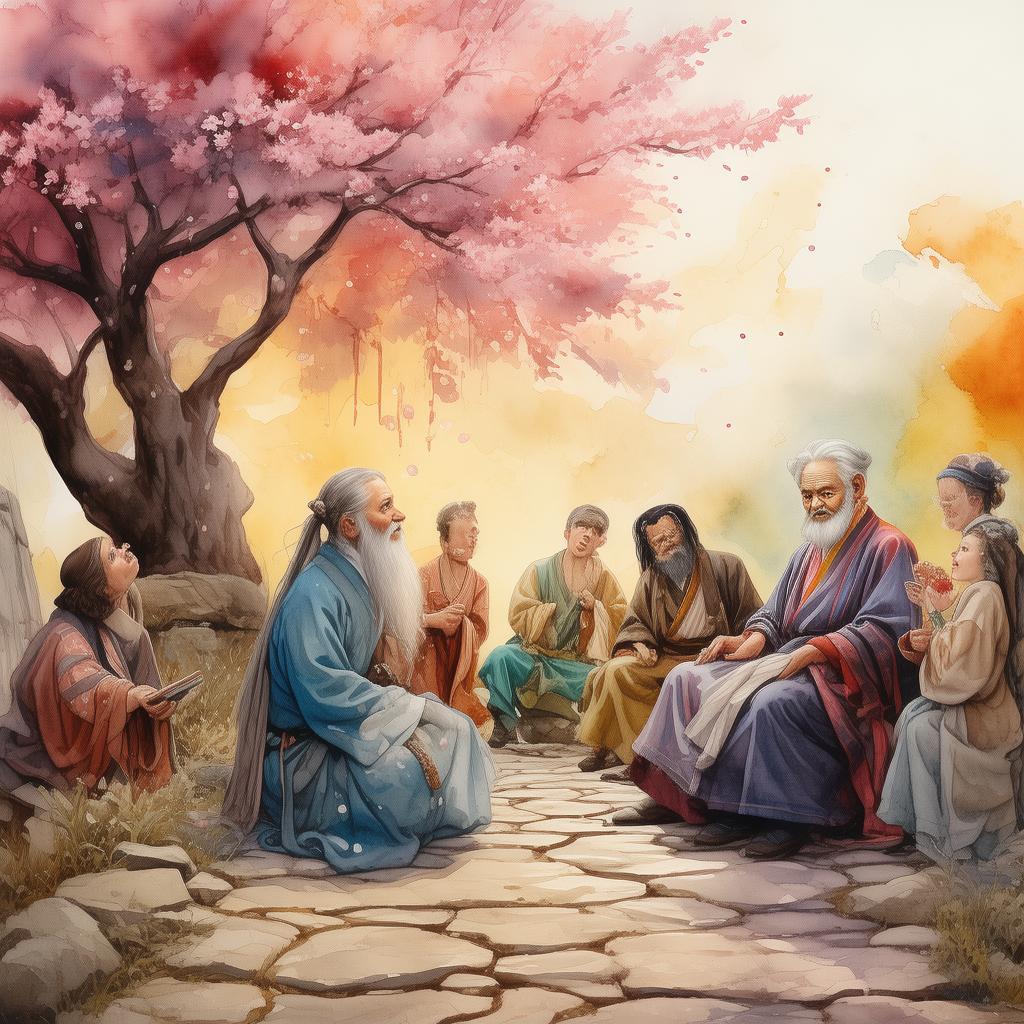
Ming's journey had not only brought him closer to the ancient characters but also to the essence of his own identity. He realized that the power of the character was not in its form, but in the intention behind it. With this newfound wisdom, Ming returned to his life, his pen now a vessel of change and understanding.
The tale of Ming and the Dragon's Calligraphy spread far and wide, inspiring generations of calligraphers and scholars. It became a testament to the power of the written word and the enduring legacy of the Chinese language.
In the end, Ming's journey was not just about the discovery of a single character, but about the discovery of himself. He had found the strength to face the world with a pen in hand, ready to write his own story, one character at a time.
✨ Original Statement ✨
All articles published on this website (including but not limited to text, images, videos, and other content) are original or authorized for reposting and are protected by relevant laws. Without the explicit written permission of this website, no individual or organization may copy, modify, repost, or use the content for commercial purposes.
If you need to quote or cooperate, please contact this site for authorization. We reserve the right to pursue legal responsibility for any unauthorized use.
Hereby declared.
